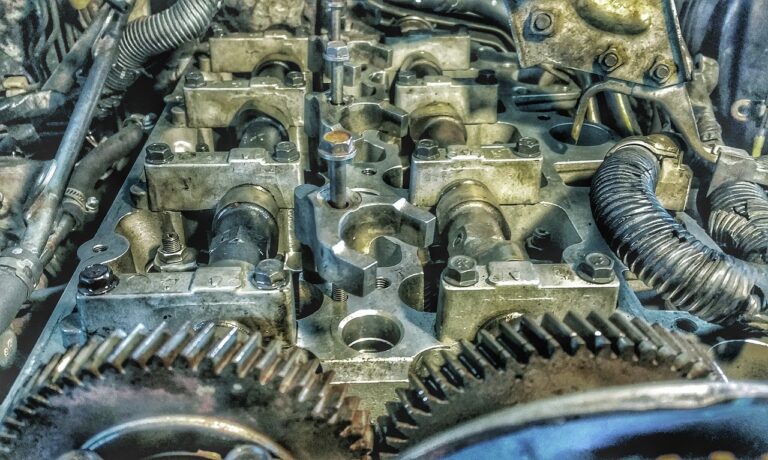Future Directions in Fuel System Component Smart Manufacturing Technologies
99 exchange login, laser 247 deposit number, yolo247 apk login:Future Directions in Fuel System Component Smart Manufacturing Technologies
In the automotive industry, smart manufacturing technologies are revolutionizing the production of fuel system components. As manufacturers strive to increase efficiency, reduce costs, and improve quality, the adoption of smart manufacturing technologies is becoming increasingly essential. From predictive maintenance to digital twinning, the future of fuel system component manufacturing is bright.
Predictive Maintenance: Ensuring Reliability and Efficiency
One of the most significant advancements in smart manufacturing technologies for fuel system components is predictive maintenance. By utilizing sensors and data analytics, manufacturers can predict when equipment is likely to fail and proactively address maintenance needs. This not only reduces downtime but also extends the lifespan of machinery, ultimately improving efficiency and reducing costs.
Digital Twinning: Enhancing Design and Production Processes
Another exciting development in smart manufacturing technologies is digital twinning. By creating a virtual replica of a physical fuel system component, manufacturers can simulate and optimize production processes before actual manufacturing begins. This not only accelerates product development but also ensures a higher level of quality and precision.
Additive Manufacturing: Revolutionizing Production Processes
Additive manufacturing, also known as 3D printing, is another game-changer in the fuel system component manufacturing industry. This technology allows for the production of complex geometries that would be impossible with traditional manufacturing methods. Additionally, additive manufacturing enables the production of customized components on-demand, reducing inventory costs and lead times.
Internet of Things (IoT): Connecting Equipment for Real-Time Monitoring
The Internet of Things (IoT) is playing a crucial role in fuel system component manufacturing by connecting equipment and enabling real-time monitoring. By collecting and analyzing data from sensors embedded in machinery, manufacturers can optimize production processes, improve quality control, and enable remote monitoring and control of equipment. This leads to increased efficiency, reduced waste, and improved overall performance.
Artificial Intelligence (AI): Optimizing Decision-Making Processes
Artificial intelligence (AI) is transforming fuel system component manufacturing by enabling machines to learn from data and make decisions autonomously. AI algorithms can analyze vast amounts of data to identify patterns, predict maintenance needs, optimize production schedules, and even detect defects in real-time. By harnessing the power of AI, manufacturers can improve efficiency, reduce costs, and enhance quality control.
Robotics: Automating Production Processes
Robotics is another key technology driving the future of fuel system component manufacturing. By automating repetitive tasks, robots can increase production speeds, improve accuracy, and enhance worker safety. Collaborative robots, also known as cobots, are becoming increasingly popular in manufacturing facilities due to their ability to work alongside human operators, further increasing efficiency and flexibility.
The Future of Fuel System Component Smart Manufacturing Technologies
As smart manufacturing technologies continue to evolve, the future of fuel system component manufacturing looks promising. From predictive maintenance to digital twinning, additive manufacturing, IoT, AI, and robotics, manufacturers have a plethora of tools at their disposal to increase efficiency, reduce costs, and improve quality.
FAQs
Q: What are smart manufacturing technologies?
A: Smart manufacturing technologies encompass a range of cutting-edge technologies, such as predictive maintenance, digital twinning, additive manufacturing, IoT, AI, and robotics, that enable manufacturers to optimize production processes and improve overall performance.
Q: How are smart manufacturing technologies revolutionizing fuel system component manufacturing?
A: Smart manufacturing technologies are revolutionizing fuel system component manufacturing by increasing efficiency, reducing costs, improving quality control, and enabling real-time monitoring and decision-making processes.
Q: What is the future of fuel system component smart manufacturing technologies?
A: The future of fuel system component smart manufacturing technologies is bright, with advancements in predictive maintenance, digital twinning, additive manufacturing, IoT, AI, and robotics poised to transform production processes and drive innovation in the industry.







